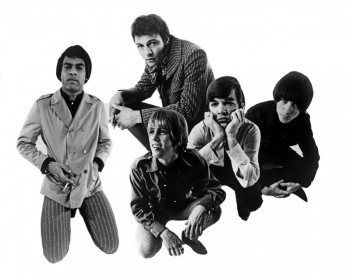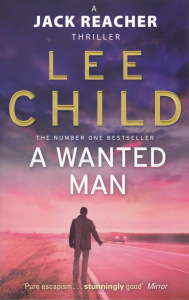
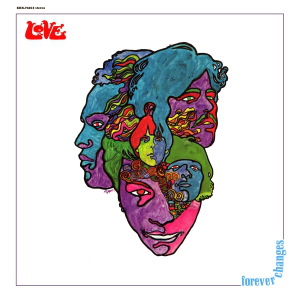
In my last post, I raved about one of my favorite bands, Love. I gave some background on this under-appreciated group and started to discuss their third record, FOREVER CHANGES. Here, I’ll try to delve into this album in more detail. (Not an easy thing. Most reviews I’ve seen are limited to a few adulatory adjectives).
I called FOREVER CHANGES a “psychedelic masterpiece.” That description may do it a disservice. “Psychedelic” is a loaded term that implies drugs. But you don’t need hallucinatory drugs, or even a desire to musically replicate a psychedelic experience to enjoy this record.
Only one percent of wine supposedly improves after 5-10 years. Consider FOREVER CHANGES, then, like a rare bottle of vintage Cabernet Sauvignon.
First, the title. It supposedly originated with a comment bandleader Arthur Lee made to an old girlfriend. She was upset after he’d dumped her, and she reminded him that he’d promised to love her “forever.” He unsympathetically replied, “Forever changes.” But add the word “Love” in front, and the phrase takes on different meaning.
The packaging of this record is also intriguing. We have a clean white background with a multi-colored, animated design of the five band members’ heads, swirling and blending into a single image. The shape resembles the continents of Africa or South America. A blending and a harmony of races, cultures, and ideas. It’s apropos of the peace/love 1960s, and still valid in 2017 (more or less…pay no attention to the wall builder in the White House).
On the first two Love records, Lee’s forceful vocals, or Ken Forssi’s pounding bass dominated the mix. On FOREVER CHANGES, the vocals and instrumentation are more subdued and democratic. The predominant instruments are acoustic guitar and orchestral strings. This is rock music, however, so there’s electric guitar. But like my blogging friend Jim the Music Enthusiast noted, the electricity is used more for punctuation than overt statement.
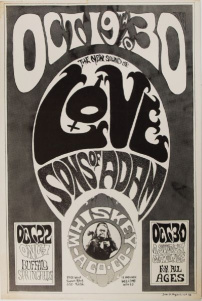
Whisky-a-Go-Go concert poster, circa 1966, showing Love, Sons of Adam, and Buffalo Springfield
There are minor string and horn arrangements, and like SGT. PEPPER, they seem to organically grow from the song, rather than being plunked down indiscriminately. The arranger for the strings and horns was one David Angel, who had done theme music for TV shows like Lassie. But the melodies themselves were hummed to him by Arthur Lee, who had total control of the sessions.
Lee was an oddity in many ways. He wore untied combat boots instead of Beatle boots. According to one-time drummer Snoopy, he liked to stroll through the Hollywood hills with a harmonica, imitating bird songs. But in a world of sunshine and hippies, he was suspicious of peoples’ motives. He had a sensitive side (he wrote lines like “We can love again/Only God knows when”), but he also cast a wary glance at a lot of the forced “good vibrations” around him. So there’s considerable questioning on FOREVER CHANGES.
You go through changes
It may seem strange
Is this what you’re put here for?
You think you’re happy
And you are happy
That’s what you’re happy for?
(from the song “You Set the Scene”)
But questions were everywhere in late 1967. The Vietnam War was at a crescendo, and there are many veiled (and unveiled) references to that war in FOREVER CHANGES.
While performing in San Francisco, the band had visited a bar and met a recently returned Vietnam vet. He went into detail about what gunfire was like, and he described how blood looked after it gushed from an open wound. Lee didn’t forget this disturbing image. He later worked it into the song “A House is Not a Motel:”
By the time that I’m through singing
The bells from the schools of walls will be ringing
More confusions, blood transfusions
The news today will be the movies for tomorrow
And the water’s turned to blood, and if
You don’t think so
Go turn on your tub
And if it’s mixed with mud
You’ll see it turn to gray
In a few lines, Lee forecasts “Full Metal Jacket,” conveys the nebulousness of the war, and describes how its ugliness had crept into American homes. And in “You Set the Scene,” he presents a challenge:
Everything I’ve seen needs rearranging
And for anyone who thinks it’s strange
Then you should be the first to want to make this change
And for everyone who thinks that life is just a game
Do you like the part you’re playing?
Not so much in these superficial and distracted days of smartphones and tweets, but in 1967 this was a major question. Youth, minorities, women, gays, and even soldiers and white-collar executives were challenging the parts they were expected to be playing. Does your career give you personal fulfillment, not just material satisfaction? Are you content with your social position? Your sexuality? Are you willing to play “follow the leader”? Do you like what’s happening in the country and in the world? If your answer is “No,” why not change or rearrange?
“The Daily Planet” is one of two songs where the studio group Wrecking Crew supplanted the regular Love band (the other song is the Johnny Mathis sendup “Andmoreagain”). Lyrically and musically, it’s like the Beatles’ “A Day in the Life,” combining several dissimilar arrangements into one song, and exposing the ludicrousness of life through a snapshot of daily monotony:
In the morning we arise
And start the day the same old way
As yesterday, the day before,
And all in all it’s just a day like all the rest
So do your best with chewing gum
And it is oh-so repetitious waiting on the sun
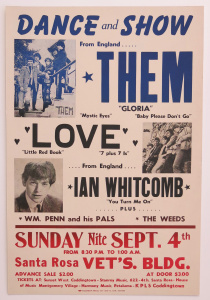
Love on same bill as Ian Whitcomb and Van Morrison’s Them, circa 1966
Lee, an often-imperious bandleader, deigned to allow guitarist Bryan MacLean two songs on FOREVER CHANGES: “Alone Again Or,” released as a (failed) single, and “Old Man.” Both are gently sublime and offer a nice counterpoint to Lee’s more incisive material. “Alone Again Or” is many Love fans’ favorite song, a mature and mysterious tune with touches of Spanish guitar, and a Tijuana Brass-styled horn break. “Old Man” is similar to Neil Young’s later, much more popular song of the same title. It may be more than coincidence, since Young was at one time considered as producer for FOREVER CHANGES.
(In 1997, Sundazed Records released a collection of Love-era MacLean demos that MacLean’s mother had discovered, on the album Ifyoubelievein. They were followed in 2000 by CANDY’S WALTZ. These minor-key romance songs are amazingly perceptive and ingenuous, and it’s a shame Arthur Lee vetoed them from Love).
Two other songs on FOREVER CHANGES that I should mention are “The Good Humor Man He Sees Everything Like This” and “Maybe the People Would Be the Times or Between Clark and Hilldale.” I won’t make an attempt to understand why “hummingbirds hum” or the significance of “pigtails in the morning sun.” I’ll just say, “Why can’t musicians create imaginative song titles like this anymore? Is it that difficult? Seriously, do we have to bring back Owsley acid?”
***
If I was stranded on a desert isle and only had a certain number of records to spin on my self-propelled turntable in my palm tree perch, I’d probably choose either of the first two Love albums, LOVE or DA CAPO, because they’re so much fun to listen to. FOREVER CHANGES doesn’t have their exuberance. But it does have a musical sophistication, an enticing marriage of instrumentation, arrangements and words that, along with new music by Lennon-McCartney, Brian Wilson, Bob Dylan, Syd Barrett and others, helped push popular songwriting into terra incognita. FOREVER CHANGES never sold many units, but it’s music that holds up very well 50 years onward.
The band broke up after FOREVER CHANGES. It’s the old story: drug abuse and interpersonal squabbles. But maybe they were also just exhausted. Arthur Lee later formed other Love bands, but it wasn’t the same. Years ago, the late Ken Forssi proudly told me: “We could do no wrong…We had something, and they call it magic.” I believe him.
Thanks for permitting me to share my love of Love. In closing, I’ll allow Love to have the last word. This elliptical slice is from “A House Is Not a Motel.” Until next time, Merry Christmas and Happy Chanukah, and I’ll see you down on Go-Stop Boulevard with Plastic Nancy:
You are just a thought that someone
Somewhere, somehow feels you should be here
And it’s so for real to touch,
To smell, to feel, to know where you are here.
